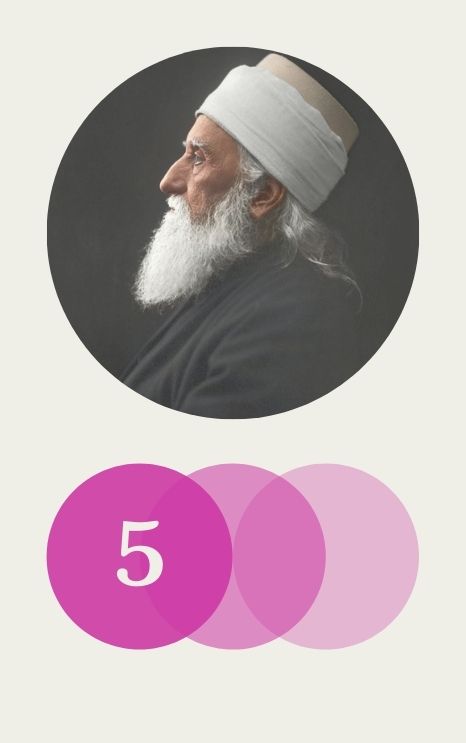In a world perpetually at the nexus of progress and tradition, the Bahá’í teachings provide profound insights into the role of women in society, emphasizing their indispensable contributions to human advancement. Episode Five of the Ambassador to Humanity podcast, titled “The March of Women,” delves into the historical, social, and spiritual dimensions of women’s empowerment from a Bahá’í perspective. This episode invites listeners to explore the myriad factors underlying the ongoing fascination with the women’s movement, while also addressing common observations that underscore the persistent challenges faced by women globally.
The foundational premise of Bahá’í teachings is the oneness of humanity, which inherently encompasses gender equality. This principle posits that the advancement of women is not merely a matter of social justice but a prerequisite for universal progress. Thus, as we unpack the contents of this episode, we are compelled to reflect on the implications of women stepping forth as leaders, breadwinners, and changemakers in their communities.
One of the most salient themes presented in the podcast is the concept of equality as a spiritual and moral imperative. The Bahá’í writings underscore that both men and women possess inherent qualities that enrich human society. Yet, societal structures have historically marginalized women, depriving the world of their potential. The podcast recounts poignant examples of women’s resilience and courage that have catalyzed transformative changes, illustrating the profound impact of reducing gender disparity in every aspect of life.
Delving deeper, the episode sheds light on the socio-cultural phenomena that contribute to the fascination with women’s movements. These movements are often enlivened by a blend of audacity and vitality, which stir the collective consciousness. The podcast captures the zeitgeist of contemporary society, characterized by a renewed vigor in advocating for gender rights. There is an intriguing juxtaposition between the historical subjugation of women and the modern-day empowerment showcased through various movements, particularly in the context of their global proclivity for activism.
Among the compelling narratives presented are those of women from diverse cultural backgrounds who have risen to prominence in their respective fields. These narratives are pivotal in challenging the perpetuation of stereotypes and breaking down the barriers that inhibit women’s progression. Listeners are encouraged to ponder the profound dichotomy of oppression versus empowerment, as illustrated by the journeys of noteworthy figures across time.
The podcast also tackles the intersectionality of gender struggles with other societal issues—such as race, class, and nationality. Women’s experiences are not monolithic; thus, the podcast eloquently articulates the necessity of adopting a holistic approach to the conversation on women’s rights. By recognizing the multitude of factors that intersect to shape women’s realities, one can appreciate the complexity of their struggles and the unique triumphs that emerge when they mobilize for change.
Moreover, the episode elucidates the role of education as a fundamental catalyst in the emancipation of women. Bahá’í teachings place a premium on the education of girls, positing that it is instrumental in nurturing a versified landscape of social transformation. Empowering women through education not only elevates individual potential but catalyzes communal progress. The podcast presents case studies of educational initiatives that spotlight the symbiosis between educating women and advancing humanity as a whole.
Another critical aspect broached in this episode is the portrayal of women in media and literature. The narration contemplates how representation—or lack thereof—shapes societal attitudes toward women’s roles. By critically analyzing the media’s power to reinforce or dismantle stereotypes, the podcast accentuates the necessity for inclusive storytelling that honors the richness of women’s experiences. It serves as a reminder of the underlying societal structures that manifest through narrative framing, urging listeners to be conscious consumers of media and advocates for equitable representation.
Additionally, this installment highlights the collective strength engendered through solidarity among women. The podcast draws on historical examples where women have united across divisions to effect meaningful change. Such solidarity is not transient; meanwhile, it is anchored in the profound understanding that women’s struggles are interconnected globally. The Bahá’í teachings emphasize unity within diversity, and this tenet is poignantly embodied in the call for a cohesive movement among women. This call to action reverberates through the dialogue, inspiring a reflection on how such unity can resound through grassroots initiatives.
As the episode progresses, it navigates the complex relationship between spirituality and activism. The Bahá’í Faith advocates for a balanced approach that harmonizes action with reflection. Therefore, the episode encourages listeners to contemplate how inner transformation can fuel external efforts for change. It argues that without a strong spiritual foundation, the quest for equality risks becoming devoid of meaning. This intrinsic relationship between spiritual principles and social action is a hallmark of Bahá’í teachings—reinforcing the idea that individual transformation is essential for collective progress.
In conclusion, “The March of Women” serves as a compelling exploration of both the challenges and the boundless potential within the global women’s movement. By integrating narratives of resistance, empowerment, education, representation, and solidarity, the podcast illuminates the multifaceted dimensions of women’s experiences. Within the Bahá’í framework, each of these elements resonates with the overarching principle of humanity’s oneness, reminding us all of the significance of elevating women’s roles in shaping a more just and equitable world. Ultimately, as society continues to grapple with issues of gender equality, it is crucial to heed the lessons imparted by the Bahá’í teachings, remaining steadfast in the pursuit of a future where every woman can thrive as an ambassador of humanity.
